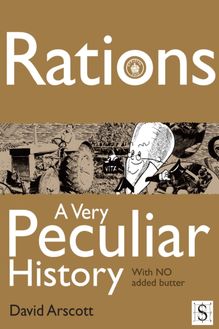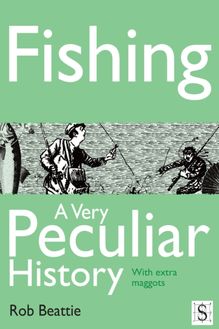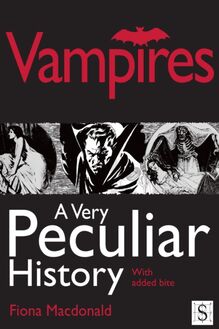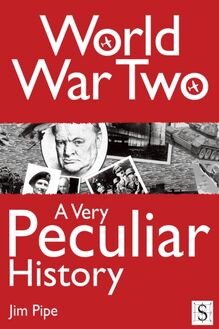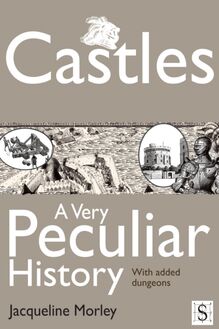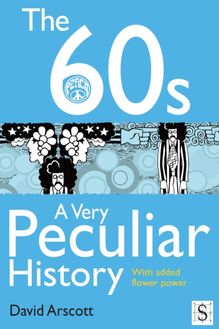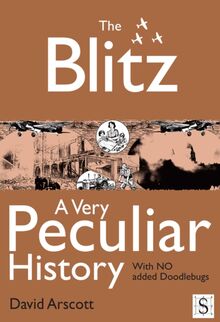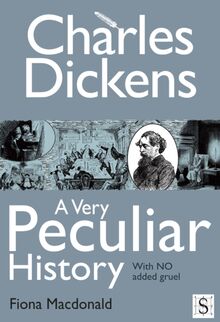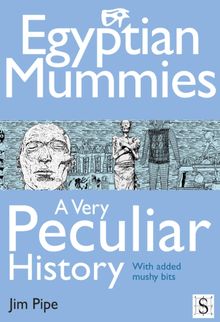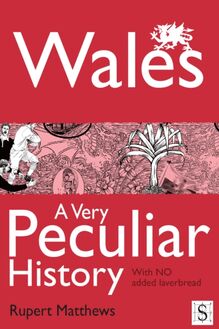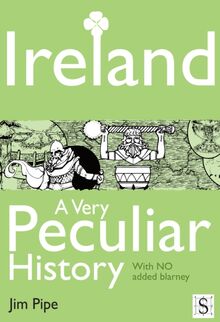Golf, A Very Peculiar History , livre ebook
69
pages
English
Ebooks
2011
Vous pourrez modifier la taille du texte de cet ouvrage
Obtenez un accès à la bibliothèque pour le consulter en ligne En savoir plus
Découvre YouScribe en t'inscrivant gratuitement
Découvre YouScribe en t'inscrivant gratuitement
69
pages
English
Ebooks
2011
Vous pourrez modifier la taille du texte de cet ouvrage
Obtenez un accès à la bibliothèque pour le consulter en ligne En savoir plus
Publié par
Date de parution
13 décembre 2011
Nombre de lectures
1
EAN13
9781908759061
Langue
English
Publié par
Date de parution
13 décembre 2011
Nombre de lectures
1
EAN13
9781908759061
Langue
English
Title Page
GOLF, A VERY PECULIAR HISTORY
With NO added bogeys
Written by David Arscott
Created and designed by David Salariya
Publisher Information
First published in Great Britain in MMXI by Book House, an imprint of
The Salariya Book Company Ltd
25 Marlborough Place, Brighton BN1 1UB
www.salariya.com
www.book-house.co.uk
Digital edition converted and distributed in 2011 by
Andrews UK Limited
www.andrewsuk.com
Editor: Jamie Pitman
Assistant editor: Jodie Leyman
Artists: Mark Bergin, David Antram
© The Salariya Book Company Ltd MMXI
All rights reserved. No part of this publication may be reproduced, stored in or introduced into a retrieval system or transmitted in any form, or by any means (electronic, mechanical, photocopying, recording or otherwise) without the written permission of the publisher. Any person who does any unauthorised act in relation to this publication may be liable to criminal prosecution and civil claims for damages.
Every effort has been made to trace copyright holders. The Salariya Book Company apologises for any omissions and would be pleased, in such cases, to add an acknowledgement in future editions.
Visit our website at
www.book-house.co.uk
or go to
www.salariya.com
for free electronic versions of:
You Wouldn’t Want to be an Egyptian Mummy!
You Wouldn’t Want to be a Roman Gladiator!
You Wouldnt Want to Join Shackleton’s Polar Expedition!
You Wouldn’t Want to Sail on a 19th-Century Whaling Ship!
Dedication
To all the birdies, eagles and bogeys in the family
DS
Quotes
‘Some of us worship in churches, some in synagogues, some on golf courses.’
Adlai Stevenson, US politician
‘The only time my prayers are never answered is on the golf course.’
Billy Graham, evangelist
‘They say that golf is like life, but don’t believe them. Golf is more complicated than that.’
Gardner Dickinson, professional golfer
‘Golf is an open exhibition of overweening ambition, courage deflated by stupidity, skill soured by a whiff of arrogance.’
Alistair Cooke, writer and broadcaster
‘If profanity had an influence on the flight of the ball, the game of golf would be played far better than it is.’
Horace G. Hutchinson, golfing author
A few reasons to play golf
•A walk of about five miles over 18 holes is excellent heart-and-lung exercise which burns up hundreds of calories and reduces your bad cholesterol.
•You’ll be out in the fresh air in attractive scenery, with a breeze in your face and clean air in your lungs.
•It’s a retreat from the dull cares of life, which miraculously fall away the moment you step on to that first tee.
•The achievement of hitting a perfect shot and watching your ball drop into the hole will live with you for days to come.
•You can start playing the game at any age, and, with the luck of good health, can carry on playing it for life.
•You’ll meet people you didn’t know before, making new friends and valuable business acquaintances.
•It’s character-building, teaching you to take the rough with the smooth, to play honourably and to show a brave face in adversity.
A few reasons not to play golf
•Lugging a heavy bag full of clubs over your shoulder for hours at a time can play havoc with your tendons – and that’s before you damage them with your golf swing.
•Rain, sleet and hail are bad enough to walk in without having to whack a tiny ball into a howling gale at the same time.
•It takes but a couple of strokes to remind you why your handicap is as poor as it is – and why your life in general is a mess.
•For every good shot there are ten bad ones – and it’s the worst of them you wake up thinking about at four in the morning.
•Once you’ve mastered the rudiments of the game, you know you’ll get steadily worse at it with every advancing year.
•Just imagine having to put up with the endless carping, cheating and uncalled-for advice of complete strangers!
•As plain failure gives way to abject humiliation you’ll end up either wanting to throttle your opponent or to bury your head in a bunker.
Introduction
Teeing
Put a rolling object in front of a man and he’ll kick it. Give him a stick and he’ll thwack it. (Many women have this primitive urge, too.) This means that, quite unknown to themselves, our ancestors were yearning to play golf the moment they emerged from their caves into a landscape of weather-rounded rocks and fallen branches.
Why did they take so long about it? Because, as any genuine golfer will tell you, the sport is one of the pinnacles of civilisation, and – in common with our other illustrious arts and sciences – its sublime subtleties and perplexing profundities could only be developed over a long period of time.
Purists love a good argument about when golf really started. In the 12th century Life of St Cuthbert by the English monk St Bede there’s an illustration of a man about to strike a ball with what looks pretty much like a crude golf club, and in a stained-glass window in Gloucester Cathedral, dating from around 1350, a club-wielding figure is surely aiming to take a swipe at the small ball in front of him.
But is it golf?
•Italy– The Romans played ‘paganica’, using curved sticks to hit feather-stuffed leather balls not unlike early golf balls. We don’t know the rules, so it may have been a form of hockey.
•Persia– In ‘chaugun’ the players used a mallet to hit the ball, but the game sounds much closer to polo, with the players mounted on horses.
•France– The game called ‘jeu de mail’ originated in the 15th century. The ball was driven through hoops with a mallet – making it a forerunner of croquet rather than golf.
•China– From the 8th to the 14th centuries the social elite played ‘Chuiwan’, the word being a composite of ‘hitting’ and ‘small ball’, and there are illustrations of it in the Palace Museum in Beijing. The balls were knocked into holes, as in golf, and the rules seem to have been similar.
•The Netherlands– Is it a coincidence that the game known as ‘colf’, a craze over there in medieval times, sounds so much like ‘golf’? The Dutch don’t think so. They didn’t hit the ball into holes, but a Latin manual published in Antwerp in 1552 includes remarks by colf players which echo those you can hear on any golf course today: ‘You wait your turn’; ‘Step back a bit, you’re in my light’; and ‘I didn’t play badly – it just wasn’t my day’.
Missing links
What’s lacking in all of these examples, however, is the idea that golf should be played out in the countryside over long distances – the very essence of the experience, after all.
That’s why we prefer the story, daft as it is, that the sport originated with Scottish shepherds who, in their idle moments, upturned their crooks and used them to pitch pebbles into rabbit holes in the rugged coastal landscape around St Andrews.
The attraction of this theory is that it chimes so well with two undeniable facts – that the game as we know it today was developed in Scotland and that St Andrews, on the country’s chilly Atlantic coast in Fife, would become the cradle of modern golf.
Too much of a good thing
Although golf was probably played at St Andrews even before the founding of the famous university there in 1411, the earliest surviving written record of the game in Scotland dates from 1457, when parliament ruled that, along with football, it was to be ‘utterly cryed down and not to be used’. It had already become so popular that young men were neglecting a vital duty. They would rather be (surprise, surprise!) stroking golf balls into holes than practising the archery skills they needed to fight ‘the auld enemy’, England – with whom the Scots were regularly at war. The problem clearly didn’t go away, because this ban on playing golf became a bit of a habit, being reaffirmed in 1470 and again in 1491. We have to imagine the young bloods of the day enjoying their game wherever they could find a useful space for it, and that almost certainly included churchyards in the towns. This must have been provocation enough for the ministers of the ‘kirk’, but even worse was the fact that a passion for golf was seducing players from their Sunday worship.
In 1596 a goldsmith, Walter Hay, was brought before the authorities at Elgin for ‘playing at the boulis and golff upoun Sundaye in the tyme of the sermon’ and had to promise, under the threat of a fine, never to do it again at any time on the Lord’s Day.
St Andrews, as you might expect, was a hotbed of golfing resistance, and the church grew so weary of dealing with the offenders that in 1599 it drew up a scale of punishments, ranging from cash fines to public repentance and ‘depravation fra their offices’ – the sack.
Golf devotees continued in their sinful ways, though. In 1651 five East Lothian men were ‘ordained to make their public repentance’, and one of them lost his job as a deacon.
Up in Aberdeen, meanwhile, another insult to the church was perpetrated by the bookbinder John Allen. In 1613 he was convicted ‘for setting ane goiff ball in the kirk yeard, and striking the same against the kirk’. We don’t know whether this was as the result of a bad shot or whether the door was his target.
The sport of kings
The Scottish golfing craze wasn’t confined to the man in the street. A succession of mona
